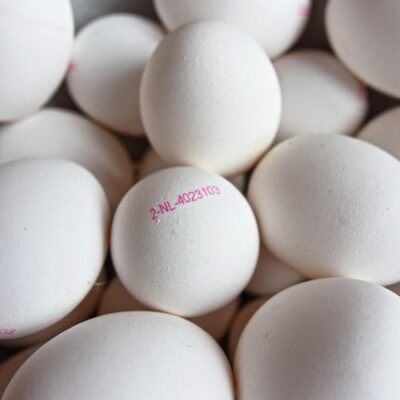Yes, dogs can safely eat duck eggs since they are a good source of protein. Duck eggs are larger than normal chicken eggs, but nutritionally they are similar. Therefore, they are safe and can be part of a balanced diet for dogs.

Safe: This food is generally considered safe by the veterinary community. Dogs can eat this food sometimes or in small amounts but contains little to no nutritional value.
| Food Safety | Safe for eating regularly |
| Nutritional Value | Excellent source of protein. Rich in zinc and magnesium |
| Potential Risks | Salmonella from raw eggs |
How Many Duck Eggs Are Safe for Dogs?
If you are introducing duck eggs to your dog’s diet for the first time, it is best to limit the number of eggs to one or two per week. It is important to observe how your dog’s body reacts to the eggs first. If your dog is fine with eating duck eggs, then you can also feed one egg daily to your dog. It is important to not feed more than two duck eggs per day to your dog.
How to Safely Prepare Duck Eggs for Your Dogs
If you are considering feeding duck eggs to your dog, it is important to take a few precautions to ensure that they are safe to eat. First, it is important to wash the shells before preparing eggs since they can have harmful bacteria on them. Cook the duck eggs thoroughly before serving them to your dogs since raw eggs can significantly increase the risk of contracting salmonella. You can scramble, fry or boil the duck eggs for your dog. Ensure to serve them completely plain and avoid any toxic seasonings such as salt.
Frequently Asked Questions
-
Duck eggs are nutritionally similar to chicken eggs; therefore, they are both great additions to your dog’s diet.
-
A duck egg a day is fine for dogs as long as it takes up the required calories in a balanced diet.







